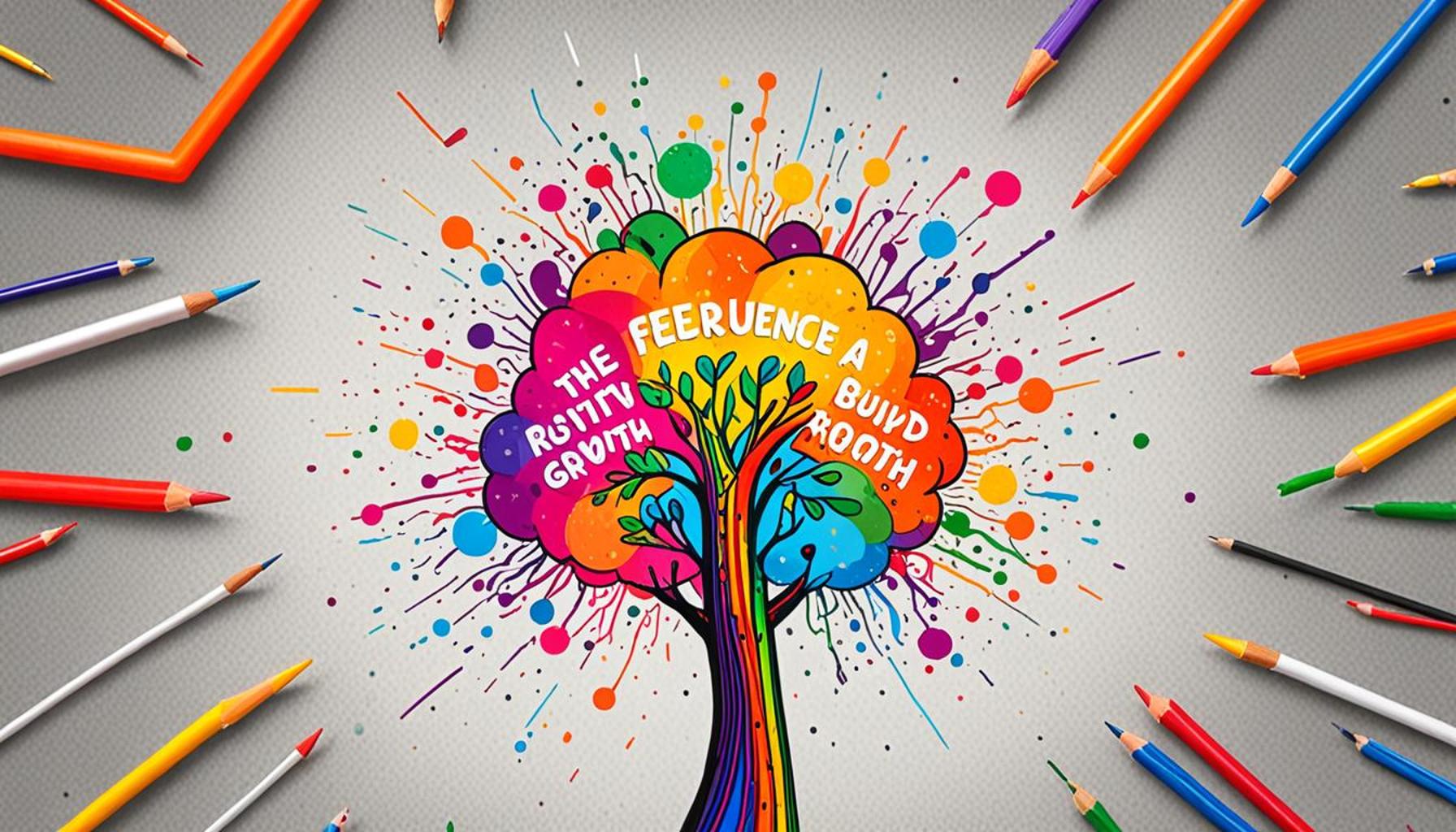Feedback in Work Environments: Building High-Performance Teams Through Open Communication

Understanding the Role of Feedback
In the intricate tapestry of today’s workplaces, feedback serves as an invaluable thread woven through the fabric of success and development. Particularly in Nigeria, where the workforce is as diverse as it is dynamic, the fervor for cultivating high-performance teams has never been more relevant. Feedback not only aids in identifying performance gaps but also acts as a catalyst for team cohesion, enabling members to work in synergy towards a common goal.
The Importance of Effective Feedback
Effective feedback in the workplace can have far-reaching effects that linger long after a conversation has concluded. Consider the first point:
- Enhance Performance: By providing constructive criticism, leaders can motivate team members to rise above their perceived limitations. For instance, when a colleague in a tech company is encouraged to refine their coding practices based on peer reviews, the result can lead to not only improved personal output but an elevated standard within the entire team.
- Encourage Innovation: In environments where open dialogues are celebrated, employees feel liberated to propose unique solutions for local challenges. In Nigeria, where entrepreneurship is on the rise, fostering a culture of iterative feedback can spark innovative ideas that address pressing issues, such as renewable energy solutions for areas impacted by frequent power outages.
- Build Trust: A feedback-centric culture inherently promotes transparency and strengthens interpersonal relationships among team members. In a Nigerian organization, where familial ties and camaraderie often play a crucial role, this enhanced trust can lead to greater collaboration and a willingness to support one another in overcoming obstacles.
Overcoming Barriers to Effective Feedback
Despite the clear advantages, many organizations grapple with the challenges of implementing feedback effectively. Cultural customs and communication styles can greatly influence employees’ receptiveness to feedback. In Nigeria, where respect for hierarchy is prevalent, feedback can sometimes be perceived as criticism rather than a developmental tool. To navigate this, leaders must cultivate an environment where feedback is framed positively, focusing on growth rather than fault-finding.
Addressing barriers to effective feedback can significantly enhance workplace morale. By establishing regular feedback sessions and creating platforms for team discussions, organizations empower their teams to engage actively. Something as simple as an end-of-week feedback roundup can provide employees with the opportunity to voice ideas and concerns collectively, thus fostering a sense of belonging and importance.
Strategies for Success
As we dive further into this topic, it’s essential to examine specific strategies that can enhance feedback mechanisms. For instance, implementing a 360-degree feedback system enables team members to gain perspectives from various stakeholders, allowing for a comprehensive understanding of their strengths and areas for growth. Furthermore, real-life examples from successful Nigerian firms show that training managers to give constructive feedback with a focus on empathy can lead to noticeable improvements in team dynamics and overall performance.

By embracing the art of communication and building a feedback-friendly environment, organizations can expect an electrifying transformation within their teams. Engaging everyone in the feedback process not only drives engagement but also increases overall morale, making feedback not just a task, but an exciting journey towards excellence.
YOU MAY ALSO LIKE: Read read another article
Creating a Culture of Feedback
To harness the full potential of feedback in work environments, organizations must strive to create a culture that emphasizes the importance of open communication. A well-established feedback culture not only transforms individual performances but also strengthens team dynamics, paving the way for sustainable growth and adaptation. In Nigeria, this can be especially critical given the diverse backgrounds and perspectives within the workforce. Emphasizing inclusivity in feedback practices allows for a richer exchange of ideas and greater innovation.
Components of an Effective Feedback Culture
To build a robust feedback culture, several core components should be considered:
- Regularity: It’s essential for feedback to be a regular occurrence rather than a sporadic event. Implementing structured feedback cycles, such as bi-weekly or monthly check-ins, helps normalize discussions around performance and expectations, leading to continuous improvement.
- Inclusivity: Engaging all team members in feedback processes fosters a sense of ownership and accountability. When everyone from interns to executives feels invited to give and receive feedback, it cultivates a more inclusive atmosphere where every opinion is valued, enhancing the organization’s collective intelligence.
- Training and Development: Equipping team leaders and members with the necessary skills to deliver and receive feedback constructively is vital. Companies in Nigeria can benefit from workshops and coaching sessions tailored to their unique cultural context, ensuring that feedback aligns with local values while promoting personal growth.
Impact of Feedback on Team Dynamics
The implications of establishing a feedback-centric culture are profound. When feedback is integrated seamlessly into the workflow, teams experience a heightened sense of purpose and direction. For example, in a collaborative project involving multiple stakeholders, regular feedback can clarify objectives, alleviate misunderstandings, and bolster overall efficiency. This kind of proactive communication not only mitigates conflict but can often lead to innovative solutions that might not have surfaced without open dialogue.
Moreover, in a Nigerian context where community and collective achievement hold significant cultural weight, fostering open communication through feedback can strengthen relationships. Teams that embrace collaborative feedback practices are likelier to form strong bonds characterized by trust and respect. This shared understanding cultivates an environment where individuals feel empowered to contribute their best efforts, ultimately enhancing performance across the board.
Leveraging Technology for Feedback Facilitation
In today’s digital age, technology plays a pivotal role in shaping feedback mechanisms. Various platforms and tools enable organizations to streamline feedback processes, provide anonymity when necessary, and track progress over time. Utilizing mobile applications or online systems for peer reviews can ensure that feedback remains constructive and accessible, while also catering to the tech-savvy workforce increasingly prevalent in Nigeria’s urban centers. By integrating such tools, organizations can reinforce the feedback culture while adapting to the evolving needs of their teams.
As we strive for excellence within teams, the significance of cultivating a strong feedback culture cannot be overstated. It is this commitment to open communication that elevates not only individual performances but also propels teams toward collective success.
| Advantage | Impact |
|---|---|
| Enhanced Communication | Promotes transparency and trust among team members |
| Increased Engagement | Encourages employees to participate, share ideas, and feel valued |
| Continuous Improvement | Helps teams adapt and refine processes based on constructive feedback |
The theme of “Feedback in Work Environments: Building High-Performance Teams Through Open Communication” embodies a transformative approach to workplace culture. One of the core advantages of fostering an environment where feedback is encouraged is the enhanced communication it nurtures. This opens the floodgates for transparency, allowing team members to build mutual trust and understanding, essential traits for any successful organization.Furthermore, when team members feel empowered to share their thoughts, engagement levels rise significantly. The increased engagement leads to employees actively participating, thus making them feel more integral to the organization’s success. This sense of belonging further fuels productivity and satisfaction.Lastly, open communication facilitates continuous improvement within teams. By welcoming constructive feedback, organizations can adapt and refine their processes, leading to innovative solutions and overall advancement. This integrative approach not only aligns teams but also enhances outcomes, making the pursuit of open communication an indispensable element in cultivating high-performance teams.
ADDITIONAL INSIGHTS: Expand your understanding here
Establishing Feedback Mechanisms
Implementing effective feedback mechanisms is crucial for actualizing the benefits of a feedback-driven culture within organizations. These systems bridge communication gaps and empower team members to expertly share their thoughts and feelings, ultimately enhancing operational efficiency and boosting morale. For companies in Nigeria, accommodating diverse ways of feedback becomes essential due to various cultural nuances and preferences.
Formal and Informal Feedback Channels
The greeting of formal and informal feedback channels ensures everyone has a voice and can contribute to the evolution of the organization. Formal feedback, often through performance reviews or structured assessment forms, serves to offer clear expectations and professional development opportunities. Conversely, informal feedback can manifest in daily interactions, team meetings, or even casual conversations over lunch. This seamless integration allows feedback to flow freely without the constraints of rigid structures.
For instance, a multinational corporation operating in Nigeria might implement a performance management system supported by regular one-on-one discussions. These interactions not only reinforce the values of feedback but also strengthen relationships between managers and team members. This frequent communication promotes a more humanized approach to feedback, vital in a culture that values interpersonal connections.
Catering to Diverse Perspectives
In a diverse society like Nigeria, recognizing the various communication styles is vital to an effective feedback process. Encouraging team members to share feedback in ways that are comfortable for them can capture a broader spectrum of insights, leading to richer discussions and innovative solutions. For example, while some individuals might prefer direct, face-to-face conversations, others may find it easier to articulate their thoughts via written communication or digital platforms.
By offering various methods, organizations can accommodate these preferences, leading to increased participation and enhancing the overall feedback experience. Encouraging team members to express themselves in their preferred formats not only fosters authentic communication but also drives engagement across teams. Implementing tools like anonymous surveys or feedback platforms allows for a more comfortable environment, ensuring even the quietest voices are heard.
Feedback Training Programs
It is critical for organizations to invest in comprehensive training programs aimed at enhancing feedback skills. These programs, tailored to Nigeria’s unique cultural context, focus on developing the communication styles that resonate best with its workforce. Strategies may include role-playing scenarios, workshops on emotional intelligence, and sessions dedicated to understanding culturally rooted communication preferences.
Such training serves not only to improve the quality of feedback but also fosters confidence among team members in giving and receiving feedback. This is essential in fast-paced work environments where clarity and promptness can make a significant difference in project outcomes. By equipping employees with the necessary skills, organizations can create a resilient workforce adept at navigating the complexities of teamwork.
The Role of Leadership in Feedback Culture
Leaders are the torchbearers of a feedback culture and must embody the principles of open communication. By demonstrating vulnerability and a willingness to accept feedback themselves, they encourage others to do the same. Leaders who actively seek feedback regarding their management styles and decisions create an atmosphere of trust and openness.
In Nigeria, where hierarchy often influences workplace dynamics, leadership must be intentional in reshaping perceptions around feedback. Leaders can establish transparent communication channels by promoting team dialogues, sharing stories of their improvement based on feedback, and recognizing publicly the contributions of employees. This visible commitment from leadership sets a compelling example, inspiring team members to take an active role in fostering a culture of feedback.
ADDITIONAL INSIGHTS: Expand your understanding here
Conclusion
In the dynamic landscape of today’s workplaces, particularly in Nigeria, fostering a culture of feedback is not merely beneficial; it is essential for building high-performance teams. As organizations navigate diverse communication styles and preferences, accommodating both formal and informal feedback channels becomes a key strategic initiative. This approach not only empowers employees but also promotes a sense of belonging and engagement, which translates into improved productivity and innovation.
The training programs designed to enhance feedback skills are equally critical, equipping team members with the confidence to share and receive constructive criticism effectively. Furthermore, leadership plays a pivotal role in modeling these behaviors, demonstrating an openness to feedback that trickles down through the organization. When leaders are transparent and proactive about communication, they cultivate trust, making it easier for employees to express their thoughts and concerns freely.
As we consider the future of work, investing in a robust feedback culture is more than just an operational necessity; it is a pathway to realizing organizational goals. Companies that prioritize open communication will not only harness diverse perspectives but will also position themselves for sustainable growth in a competitive market. In conclusion, by recognizing the profound impact of feedback in work environments, organizations can transform their teams into high-performing units ready to tackle challenges and drive success.


